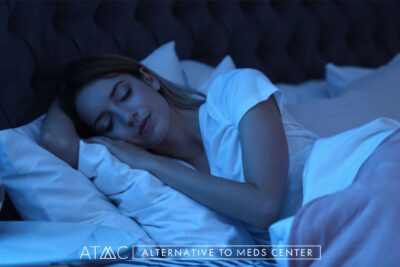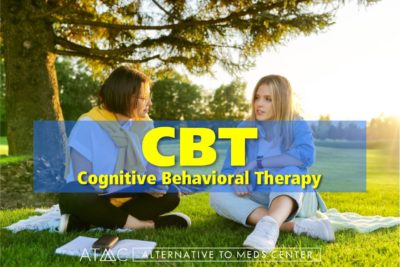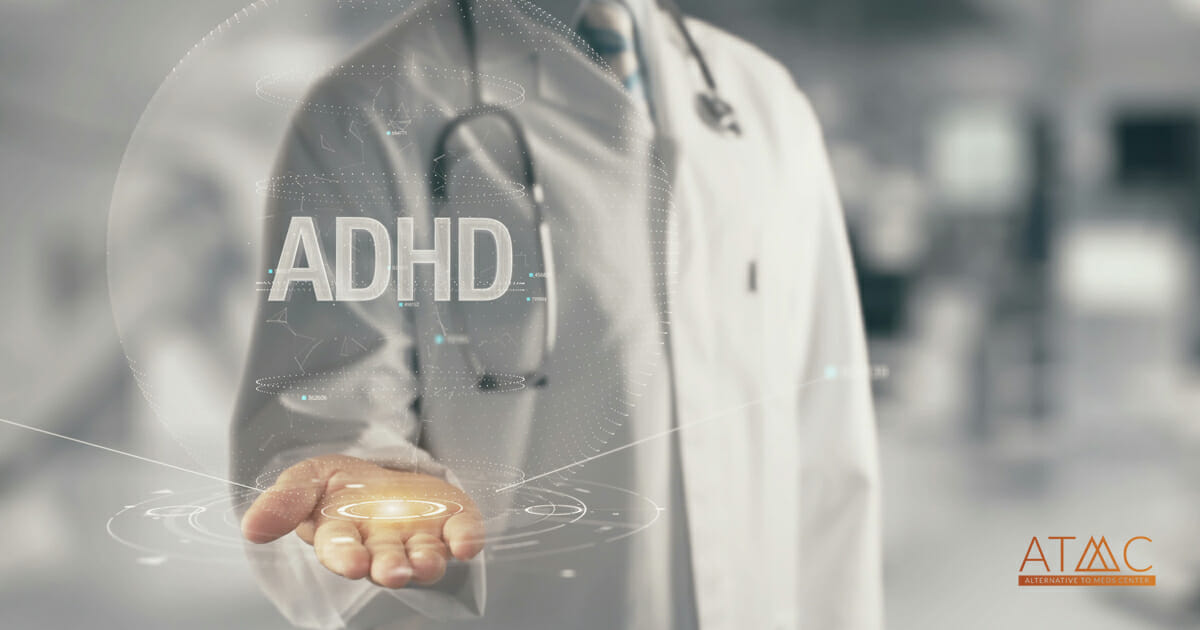1. FDA drug label Vyvanse (lisdexamfetamine dymesylate) oral capsules. Approval 2007 [cited 2023 Mar 29]
2. 2018 National Survey, US Dept. of Health. Key substance Use and Mental Health Indicators in the US [published online by SAMHSA] [cited 2023 Mar 27]
3. Pinto S, Correia-de-Sá T, Sampaio-Maia B, Vasconcelos C, Moreira P, Ferreira-Gomes J. Eating Patterns and Dietary Interventions in ADHD: A Narrative Review. Nutrients. 2022 Oct 16;14(20):4332. doi: 10.3390/nu14204332. PMID: 36297016; PMCID: PMC9608000. [cited 2023 Mar 29]
4. Millichap JG, Yee MM. The diet factor in attention-deficit/hyperactivity disorder. Pediatrics. 2012 Feb;129(2):330-7. doi: 10.1542/peds.2011-2199. Epub 2012 Jan 9. PMID: 22232312. [cited 2023 Mar 29]
5. Shareghfarid E, Sangsefidi ZS, Salehi-Abargouei A, Hosseinzadeh M. Empirically derived dietary patterns and food groups intake in relation with Attention Deficit/Hyperactivity Disorder (ADHD): A systematic review and meta-analysis. Clin Nutr ESPEN. 2020 Apr;36:28-35. doi: 10.1016/j.clnesp.2019.10.013. Epub 2020 Feb 18. PMID: 32220366. [cited 2023 Mar 29]
6. Gordon, E. L., Ariel-Donges, A. H., Bauman, V., & Merlo, L. J. (2018). What Is the Evidence for “Food Addiction?” A Systematic Review. Nutrients, 10(4), 477. https://doi.org/10.3390/nu10040477 [cited 2023 Mar 29]
7. Guerdjikova AI, Mori N, Blom TJ, Keck PE Jr, Williams SL, Welge JA, McElroy SL. Lisdexamfetamine dimesylate in binge eating disorder: a placebo controlled trial. Hum Psychopharmacol. 2016 Sep;31(5):382-91. doi: 10.1002/hup.2547. PMID: 27650406. [cited 2023 Mar 29]
8. Bull-Larsen S, Mohajeri MH. The Potential Influence of the Bacterial Microbiome on the Development and Progression of ADHD. Nutrients. 2019 Nov 17;11(11):2805. doi: 10.3390/nu11112805. PMID: 31744191; PMCID: PMC6893446. [cited 2023 Mar 29]
9. Terry, S.M., Barnett, J.A. & Gibson, D.L. A critical analysis of eating disorders and the gut microbiome. J Eat Disord 10, 154 (2022). https://doi.org/10.1186/s40337-022-00681-z [cited 2023 Mar 29]
10. Hvolby A. Associations of sleep disturbance with ADHD: implications for treatment. Atten Defic Hyperact Disord. 2015 Mar;7(1):1-18. doi: 10.1007/s12402-014-0151-0. Epub 2014 Aug 17. PMID: 25127644; PMCID: PMC4340974. [cited 2023 Mar 29]
11. Chan V, Lo K. Efficacy of dietary supplements on improving sleep quality: a systematic review and meta-analysis. Postgrad Med J. 2022 Apr;98(1158):285-293. doi: 10.1136/postgradmedj-2020-139319. Epub 2021 Jan 13. PMID: 33441476. [cited 2023 Mar 29]
12. Banno, M., Harada, Y., Taniguchi, M., Tobita, R., Tsujimoto, H., Tsujimoto, Y., Kataoka, Y., & Noda, A. (2018). Exercise can improve sleep quality: a systematic review and meta-analysis. PeerJ, 6, e5172. https://doi.org/10.7717/peerj.5172 [cited 2023 Mar 29]
13. Markwald, R. R., Iftikhar, I., & Youngstedt, S. D. (2018). Behavioral Strategies, Including Exercise, for Addressing Insomnia. ACSM’s health & fitness journal, 22(2), 23–29. https://doi.org/10.1249/FIT.0000000000000375 [cited 2023 Mar 29]
14. Allison KC, Spaeth A, Hopkins CM. Sleep and Eating Disorders. Curr Psychiatry Rep. 2016 Oct;18(10):92. doi: 10.1007/s11920-016-0728-8. PMID: 27553980. [cited 2023 Mar 29]
15. Kadri, A., Slimani, M., Bragazzi, N. L., Tod, D., & Azaiez, F. (2019). Effect of Taekwondo Practice on Cognitive Function in Adolescents with Attention Deficit Hyperactivity Disorder. International journal of environmental research and public health, 16(2), 204. https://doi.org/10.3390/ijerph16020204vv [cited 2023 Mar 29]
16. Antonelli M, Barbieri G, Donelli D. Effects of forest bathing (shinrin-yoku) on levels of cortisol as a stress biomarker: a systematic review and meta-analysis. Int J Biometeorol. 2019 Aug;63(8):1117-1134. doi: 10.1007/s00484-019-01717-x. Epub 2019 Apr 18. PMID: 31001682. [cited 2023 Mar 29]
17. Firth, J., Teasdale, S. B., Allott, K., Siskind, D., Marx, W., Cotter, J., Veronese, N., Schuch, F., Smith, L., Solmi, M., Carvalho, A. F., Vancampfort, D., Berk, M., Stubbs, B., & Sarris, J. (2019). The efficacy and safety of nutrient supplements in the treatment of mental disorders: a meta-review of meta-analyses of randomized controlled trials. World psychiatry : official journal of the World Psychiatric Association (WPA), 18(3), 308–324. https://doi.org/10.1002/wps.20672 [cited 2023 Mar 29]
18. Pozzi M, Carnovale C, Mazhar F, Peeters GGAM, Gentili M, Nobile M, Radice S, Clementi E. Adverse Drug Reactions Related to Mood and Emotion in Pediatric Patients Treated for Attention Deficit/Hyperactivity Disorder: A Comparative Analysis of the US Food and Drug Administration Adverse Event Reporting System Database. J Clin Psychopharmacol. 2019 Jul/Aug;39(4):386-392. doi: 10.1097/JCP.0000000000001058. PMID: 31205193. [cited 2023 Mar 29]
19. Canadian Pediatric Society Clinicians Guide, Non-pharmacological Interventions: Key Points for Treatment of ADHD [cited 2023 Mar 29]
20. Mack RA, Stanton CE, Carney MR. The importance of including occupational therapists as part of the multidisciplinary team in the management of eating disorders: a narrative review incorporating lived experience. J Eat Disord. 2023 Mar 9;11(1):37. doi: 10.1186/s40337-023-00763-6. PMID: 36894981; PMCID: PMC9996838. [cited 2023 Mar 29]
21. American Dietetic Association. Position of the American Dietetic Association: Nutrition intervention in the treatment of anorexia nervosa, bulimia nervosa, and other eating disorders. J Am Diet Assoc. 2006 Dec;106(12):2073-82. doi: 10.1016/j.jada.2006.09.007. PMID: 17186637. [cited 2023 Mar 29]
22. Lyon MR, Kapoor MP, Juneja LR. The effects of L-theanine (Suntheanine®) on objective sleep quality in boys with attention deficit hyperactivity disorder (ADHD): a randomized, double-blind, placebo-controlled clinical trial. Altern Med Rev. 2011 Dec;16(4):348-54. PMID: 22214254. [cited 2023 Mar 29]
23. Niederhofer H. Ginkgo biloba treating patients with attention-deficit disorder. Phytother Res. 2010 Jan;24(1):26-7. doi: 10.1002/ptr.2854. PMID: 19441138. [cited 2023 Mar 29]
24. Bos DJ, Oranje B, Veerhoek ES, Van Diepen RM, Weusten JM, Demmelmair H, Koletzko B, de Sain-van der Velden MG, Eilander A, Hoeksma M, Durston S. Reduced Symptoms of Inattention after Dietary Omega-3 Fatty Acid Supplementation in Boys with and without Attention Deficit/Hyperactivity Disorder. Neuropsychopharmacology. 2015 Sep;40(10):2298-306. doi: 10.1038/npp.2015.73. Epub 2015 Mar 19. PMID: 25790022; PMCID: PMC4538345. [cited 2023 Mar 29]
25. Widenhorn-Müller K, Schwanda S, Scholz E, Spitzer M, Bode H. Effect of supplementation with long-chain ω-3 polyunsaturated fatty acids on behavior and cognition in children with attention deficit/hyperactivity disorder (ADHD): a randomized placebo-controlled intervention trial. Prostaglandins Leukot Essent Fatty Acids. 2014 Jul-Aug;91(1-2):49-60. doi: 10.1016/j.plefa.2014.04.004. Epub 2014 May 28. PMID: 24958525. [cited 2023 Mar 29]
26. Wilson GT. Psychological treatment of eating disorders. Annu Rev Clin Psychol. 2005;1:439-65. doi: 10.1146/annurev.clinpsy.1.102803.144250. PMID: 17716095. [cited 2023 Mar 29]
27. Yau YH, Potenza MN. Stress and eating behaviors. Minerva Endocrinol. 2013 Sep;38(3):255-67. PMID: 24126546; PMCID: PMC4214609. [cited 2023 Mar 29]
28. Walsh BT. Psychopharmacologic treatment of bulimia nervosa. J Clin Psychiatry. 1991 Oct;52 Suppl:34-8. PMID: 1938987. [cited 2023 Mar 29]
29. FDA label Adderall ER [cited 2023 Mar 29]
30. Stella VJ, Charman WN, Naringrekar VH. Prodrugs. Do they have advantages in clinical practice? Drugs. 1985 May;29(5):455-73. doi: 10.2165/00003495-198529050-00002. PMID: 3891303. [cited 2023 Mar 29]

 Vitamin D
Vitamin D Binge eating disorders make up the majority of diagnosed disordered eating cases, and there is only one prescription drug that is currently FDA-approved for BED, and that is Vyvanse. For the treatment of binge-purge disordered eating, (bulimia nervosa) some antidepressants have been FDA-approved. Antidepressants can cause changes in appetite. For example, a suppressed appetite may result in a temporary loss of weight and a possible reduction of instances of disordered eating. But the opposite can also occur, where a disordered appetite may result in weight gain. The mechanisms of antidepressants on appetite and the frequency of disordered eating episodes are not fully understood and have not been clinically tested in long-term trials. The American Dietetic Association considers nutrition to be a first-line treatment in this arena.20,21,28
Binge eating disorders make up the majority of diagnosed disordered eating cases, and there is only one prescription drug that is currently FDA-approved for BED, and that is Vyvanse. For the treatment of binge-purge disordered eating, (bulimia nervosa) some antidepressants have been FDA-approved. Antidepressants can cause changes in appetite. For example, a suppressed appetite may result in a temporary loss of weight and a possible reduction of instances of disordered eating. But the opposite can also occur, where a disordered appetite may result in weight gain. The mechanisms of antidepressants on appetite and the frequency of disordered eating episodes are not fully understood and have not been clinically tested in long-term trials. The American Dietetic Association considers nutrition to be a first-line treatment in this arena.20,21,28








